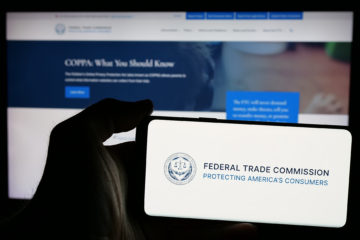The Market Institute Senior Fellow Norm Singleton has a new article in Real Clear Markets looking at the irony of the Federal Trade Commission and Chairwoman Lina Khan for not targeting one type of organization for antitrust litigation: labor unions.
“Federal Trade Commission Chair Lina Khan is so eager to drag businesses into court for alleged violations of federal antitrust laws that it seems like competing CEOs cannot even have coffee without Khan ordering the FTC to investigate whether they had black coffee or double espressos. However, there is one organization that Commissioner Khan wants to exempt from antitrust prosecutions: labor unions, specifically those formed to negotiate wages and working conditions for independent contractors working for “gig” economy companies such as Uber and Lyft.
It is ironic that this is one of the few areas of economic activity Khan does not want to subject to antitrust law, since courts have held that unions engage in a “contract or conspiracy to raise prices,” and thus violate federal antitrust laws. Federal labor laws like the National Labor Relations Act exempt unions from antitrust laws. However, such exemptions only apply to unions comprised of employees, not independent contractors.
In a truly free market, government would neither prohibit nor compel (as existing federal law does in states without Right to Work laws) unionization of any workers. Government would also not force employers to negotiate with a union. Rather, workers could join the union if they decided it would best represent their interests—while employers could decide whether or not to recognize a union as a legitimate representative of their workforce.
Employers may want to recognize a union because it is easier to negotiate with one collective entity than each employee separately, or because paying the “union wage” and providing “union benefits” helps the company attract the best workers. Employees and independent contractors could form organizations for purposes other than collective bargaining. For example, they could form the modern version of friendly societies. These were organizations prevalent in the early days of the Industrial Revolution that allowed workers to pull collective resources to provide support for those who could no longer work or who needed money to pay for medical care for themselves or family.
Thus, Lina Khan and her allies are correct that independent contractors should be allowed to join together in a collective bargaining group if they (not politicians and bureaucrats or even their fellow workers) decide doing so is in their best interests. However, Khan fails to see the same logic that supports allowing independent contractors to join together to raise their wages and otherwise improve their working conditions can be used to support business mergers. For example, if independent contractors can form a union to increase their earnings, why shouldn’t Microsoft and Activision be allowed to merge in order to better compete with Sony? There seems to be no objective reason for this different treatment other than the fact that progressives like workers and don’t like businesses, large or small (although they are sometimes inclined to assist a small business if it involves hurting a large one.)
Even if independent contractors were allowed to form and join traditional union workers, a large number of gig employees would likely refuse to join. This is because “gig workers” value the autonomy and flexibility to set their own hours and decide what potential customers to service. Imposing unionization on the gig economy will limit autotomy and flexibility.”


